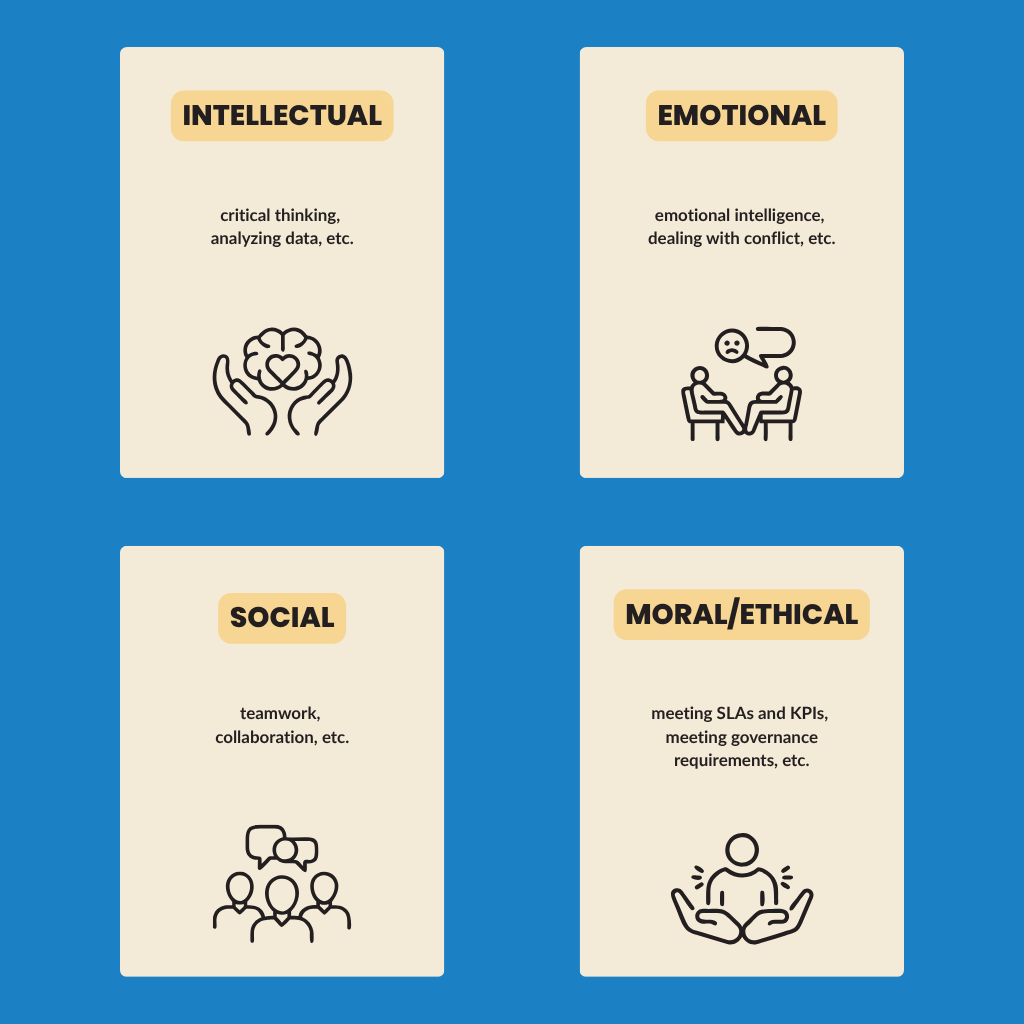- 16 lip, 2025
- 3 m czytania
Can We Stop with Talking About Generations Already?
Talking about generations and their attributes is divisive. It would be better to talk about what joins us, i.e., how we develop as people…and how to help our team members develop themselves to be better employees.
Currently, we hear a lot about “Gen Z” or Zoomers. “They’re lazy,” “They don’t want to work,” “They’re unfocused,” etc. Sounds like the same things we heard about Millennials in the 2010s. Funny…sounds like the same things I heard about Gen X (Xers) back in late 1990s and early 2000s. Oh! And the same thing I heard about Boomers when I was finishing high school in the late 1970s. Funny that….

We talk about generations as if they are homogenous groups of people with all the same characteristics. If we talk about a particular ethnic group that way, it would be called “racism.” So, if racism is bad, shouldn’t “generationism” be bad, too?
The world is changing, and those changes are taking place in time…all the time. So there is a continuum of change and there are events that affect groups of people differently. Rock-n-Roll affected early Boomers (born 1946–1955) differently than late Boomers (born 1955–1964). The invention of the atomic bomb also affected early and late Boomers differently.
Parenting evolved through most of the 20th Century, beginning with the Great Generation (born 1901–1927) all the way through to Gen Alpha (born ~2010–????). Some parenting issues are culturally influenced. Some parenting issues are influenced by child psychologists who wrote books and influenced parents through the 20th Century (e.g. Dr. Benjamin Spock or Dr. James Dobson).
Just like general cultural events or technological advancements, parenting has had a huge impact on each of the generations of the last 120 years. If for no other reason, than when (and to what extent) parents allow their children access to the new technology. For example, Steve Jobs didn’t allow his children to use an iPad because of the negative effects of the technology on people (being very addictive). In his book The Shallows, Nicholas Carr talks about the damaging effects of using the Internet and hyperlink technology on thinking and focus.

OK, so if we decide to stop talking about Generations, how should we talk about our employees? How about…as human beings—who are growing and developing? If we stop thinking about employees vertically as generations, but rather horizontally as people who are the road to development, then we can shift our focus from categorizing them to helping them grow. We can take them where they are and help them move forward to where they want to be and need to be (in terms of doing their work).
If we look at traditional Professional Skills (a.k.a. “soft skills”) training, there are 4 areas they focus on:
- intellectual (critical thinking, analyzing data, etc.)
- emotional (emotional intelligence, dealing with conflict, etc.)
- social (teamwork, collaboration, etc.)
- moral/ethical (meeting SLAs and KPIs, meeting governance requirements, etc.)
And these are the 4 primary areas that people develop in. This means that regardless of age, these are the areas we are always developing as we grow older—and these are the areas we need to develop in our organizations.

The catch is that, while we age at a set rate that is measurable, we develop these other areas of our lives at varying rates. Though our development is linear, we can end up with a person who is physically 30 years old, intellectually 40 years old, emotionally 16 years old, socially 20 years old, and morally/ethically 10 years old (or 50 years old). The development is linear…but not necessarily uniform.
And these levels of development can be completely independent of which generation you are in.
So, maybe it’s time we start looking for tools to help us understand where people are on each of these 4 continuums and for ways of helping them develop to the next level. Any thoughts?

